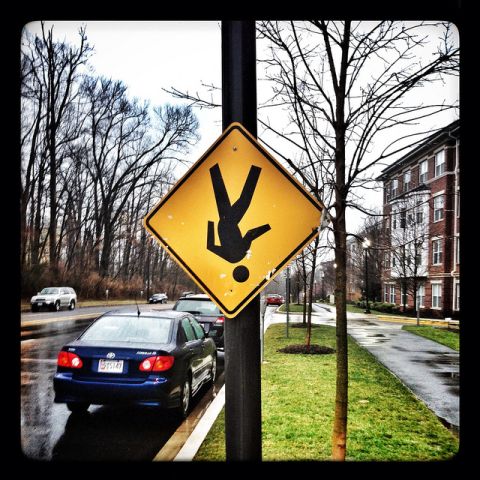
You’ve probably experienced a phenomenon we could call the “Spiral of Delay”. You put off an obligation repeatedly, until it seems so stupid that you haven’t done it yet that the thought of doing it becomes almost humiliating. So you delay a little longer.
You can’t always know what costs you’ll face in embarrassment and penalties to, say, renew your tenant insurance eleven weeks late, but we all know that those costs can only get larger when you make it into sixteen weeks, or six months. Yet, so often we procrastinate anyway, for a very predictably worse outcome.
I suppose some of you do everything more or less on time, and don’t know what I’m talking about. You can click away now if you like, or you can continue to read, out of curiosity about what’s quietly tormenting many of your fellow humans.
From the emails I get, I know that many of you are horrendous procrastinators like I am, and that for you, having something on your to-do list that’s two months or two years overdue is totally normal, if not exactly comfortable.
Part of what we procrastinators worry about is that everyone will find out we aren’t really adults. We avoid a task for the usual reasons at first—we can’t find a good time this week, we need to look something up before we do it. But once we’ve delayed six weeks or six months or six years on it, we start avoiding it for a different reason: because doing it so absurdly late is revealing to the world (and maybe confirming for ourselves) that we are failed adults, incompetent people all around.
About a year ago I realized it had been about a year since I paid my yearly fee for my PO Box. I’m not sure what else happened that day, but I definitely didn’t go down to the post office.
I remembered it again three months after that. I knew it had almost certainly lapsed by then, and it needed to be sorted out. But already I felt dumb for not having acted when a responsible person would have. By that point, doing the task wasn’t just an annoying prospect, it was embarrassing one.
The usual rationalizations surfaced—they hadn’t phoned yet; maybe I had inadvertently paid for two years? Knowing I’d feel sheepish and stupid no matter when I went, it seemed not entirely unreasonable to do it later. Read More
 I'm David, and Raptitude is a blog about getting better at being human -- things we can do to improve our lives today.
I'm David, and Raptitude is a blog about getting better at being human -- things we can do to improve our lives today.
It all pretty the opposite if you're not in the US :) Since 2022 I've changed 3 countries and I'm planning to emigrate to the fourth one. I've had so much novelty and so many things to adapt to. However, time had never run so fast for me as in 2022...